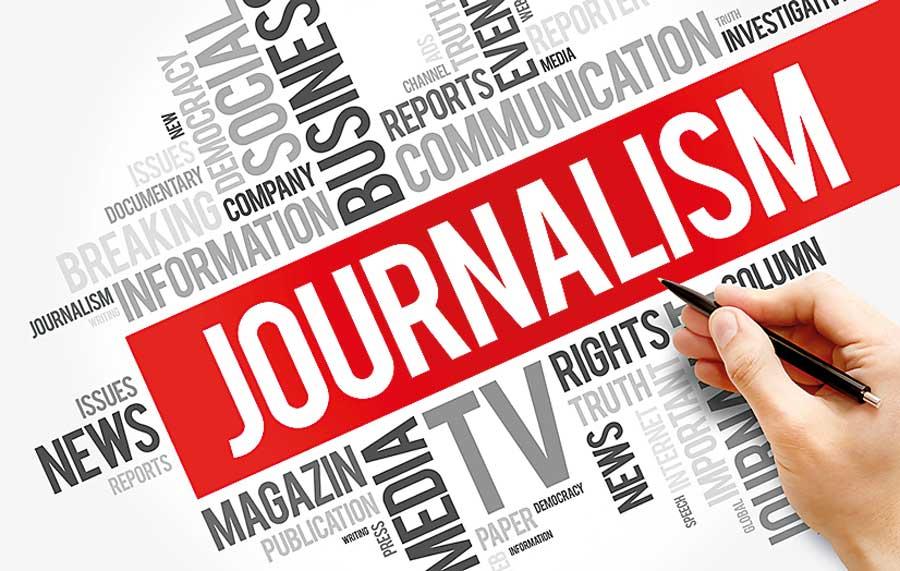Reply To:
Name - Reply Comment

The otherness has been removed from journalism. The otherness that helped us to stick to or at least maintain a thin veneer of pretence of a layer of objectivity in journalism. Growing up in Sri Lanka and covering the war at its brutal worst, I was confronted with the duality of objectivity. This was a time when foreign correspondents sashayed past their local counterparts as if they were the gold standard of journalism. You poor sods could not even think of aspiring to those ideals.
maintain a thin veneer of pretence of a layer of objectivity in journalism. Growing up in Sri Lanka and covering the war at its brutal worst, I was confronted with the duality of objectivity. This was a time when foreign correspondents sashayed past their local counterparts as if they were the gold standard of journalism. You poor sods could not even think of aspiring to those ideals.
They would hunch together at press conferences. They would travel together, work together and more often than not give the condescending eye to the local reporters. There was the occasional smooch, when information and access was contrived through the intervention of the designated poor cousins.
"The last one year and 10 months have pivoted social media as the inescapable resource for any journalist. Whether we like it or not we have to be on at least some of it, because that is where information flows."
They gave us sermons on objectivity. The ideal of detachment from the story. That was all fine when you had no family living here. When the otherness was easily achieved after filing the copy by meeting up at Barefoot with other expats over a few shots. This was the state of the collective otherness from place, people and location.
Not so easy when otherness was nowhere in sight when you logged off. When you waited for loved ones to get back home without being caught to the next bomb targeting civilians. Otherness is not an option when every aspect of your life is dominated by the story you just filed. Every conversation you have will be about the bomb blast that ripped open a commuter train.
What has the pandemic done? It has taken away the distant otherness of this one story. No one has been spared. Nowhere is safe. This is not a distant story that we can get in and get out, quickly. There is no parachute option. This story is at our doorstep, at everyone’s doorstep, there is no escape.
Like everything else in our lives, journalism too has undergone seismic changes in the last 22 months. Some of these changes reach into the core of journalism. Because of the influence of the pandemic, we have had to re-evaluate the impact of the experience of the journalist on the journalism.
Mental well-being is now a focal point. Far cry from the days of the pseudo machoman war correspondent reporting a war with objectivity. The conversation needs to take into account how we as journalists deal with the dynamics of objectivity and subjective personal experiences.
"What has the pandemic done? It has taken away the distant otherness of this one story. No one has been spared. Nowhere is safe. This is not a distant story that we can get in and get out, quickly. There is no parachute option. This story is at our doorstep, at everyone’s doorstep, there is no escape"
The last one year and 10 months have pivoted social media as the inescapable resource for any journalist. Whether we like it or not we have to be on at least some of it, because that is where information flows.
What about journalistic objectivity and professionalism on social media? How many of us take the effort to delink out personal and professional selves on social media? Is it necessary?
On the same Twitter handle where we espouse the ideals of objective journalism, we post images that promote the latest cake we ate, the last hotel we went to (should we say that we were wined and dined for free, if we were? Or is that just, the inconvenient truth). We seriously need to talk about journalistic objectivity and professionalism on social media.
What about intrusions into our private space? That becomes a tricky area when the intrusions are chronic and self-inflicted. Should someone tell the twitterati that he is an insomniac? Not in so many words but by daily, detailed accounts of the difficulties to get to sleep.
Otherness has surely passed. This is not someone else’s story, this is my story and everyone else’s as well. The fear I feel is the collective fear. The sigh I heave is everyone’s sigh of relief.
If anything, the removal of the otherness should make journalism more empathic. The pain cuts to the bone, but the pain is authentic.
The writer is a journalism researcher and a writer. He can be contacted on
[email protected]